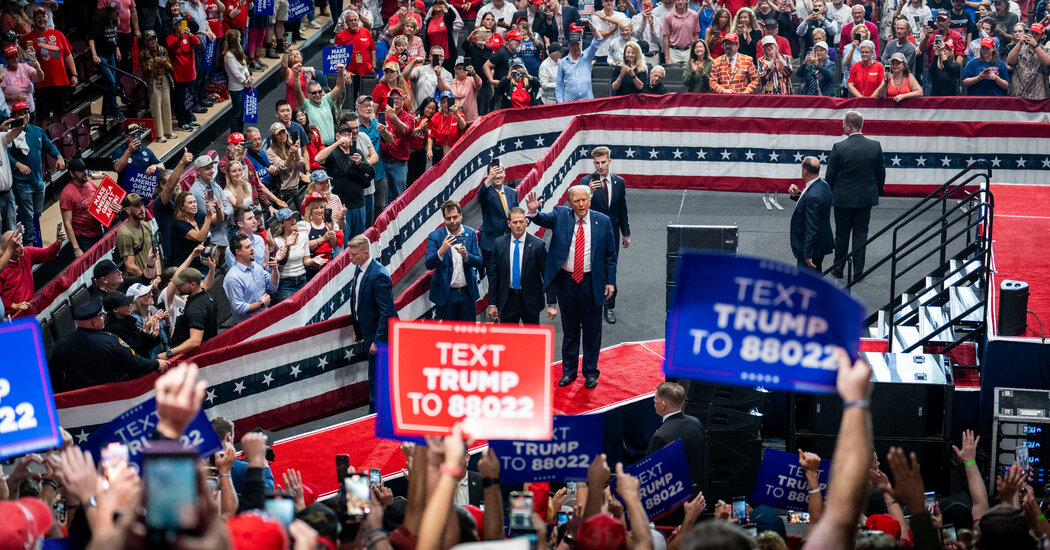- Messages
- 5,828
Yeah, it's bad enough to be an asshole, but it's far worse to be an asshole and plainly wrong.Good grief, these people are insufferable.
Follow along with the video below to see how to install our site as a web app on your home screen.
Note: This feature may not be available in some browsers.
Yeah, it's bad enough to be an asshole, but it's far worse to be an asshole and plainly wrong.Good grief, these people are insufferable.


Unfortunately GY has another year.The voter purge in the Commonwealth will mean nothing in the final result of Virginia's choice for Prez, Senate or key state races . .
Youngkin is history after next week, eat $#!t and die Glenn . . . !
The judge didn't. The judge ordered the voters to be restored. The appeals court affirmed. It was the Supreme Court that stayed the judgment (meaning that the plaintiffs still win in the end, but who cares because the election is over).I think the Supreme Court may just be getting warmed up for what is to come. The groundwork has been laid down for all sorts of legal challenges in various states. If it is a close election, then we may not know the winner for a long time as the legal process plays out. One of the worst things that can happen. The fact that the Supreme Court has a conservative majority looms very large indeed.
At risk of being excoriated, I am not sure why the federal judge in VA ruled to force VA to put the 1,600 self-identified non-citizens on the voting rolls. Just gave Republicans a ripe campaign issue as that decision gave legitimacy to concerns that Democrats are pushing to allow non-citizens to vote. The whole quiet period argument would not seem to cover those who were never eligible to vote in the first place.
Why restore non-citizens who were never eligible to vote to the voting rolls?The judge didn't. The judge ordered the voters to be restored. The appeals court affirmed. It was the Supreme Court that stayed the judgment (meaning that the plaintiffs still win in the end, but who cares because the election is over).
I am exceedingly worried about the Supreme Court intervening. That said, I was expecting them to get involved in the PA ballot case and they declined. So one very bad decision, and one decent decision (I'm not going to give them much credit for doing the obviously right thing).
Hopefully it isn't going to be close enough to matter.
Because those removed also included citizens who WERE eligible to vote, and there are plenty of other tools that can be employed to prevent noncitizens from voting that do not also prevent citizens from voting. Seemed pretty clear to me.Why restore non-citizens who were never eligible to vote to the voting rolls?
You can restore those that were eligible while not restoring those that never were eligible, or is that considered too difficult?Because those removed also included citizens who WERE eligible to vote, and there are plenty of other tools that can be employed to prevent noncitizens from voting that do not also prevent citizens from voting. Seemed pretty clear to me.
More difficult than following rules already place and using rules already in place to disqualify the noncitizens. Is that considered too proper?You can restore those that were eligible while not restoring those that never were eligible, or is that considered too difficult?
Legally, the principle that non-citizens cannot vote seems fundamental to me.More difficult than following rules already place and using rules already in place to disqualify the noncitizens. Is that considered too proper?
No, you can't. The whole reason that they purged 1600 was that they don't know who was eligible. There is a routine process for removing the voters. It happens after the election.You can restore those that were eligible while not restoring those that never were eligible, or is that considered too difficult?
Have you read anything from a credible source about this matter? There’s a very good reason federal law doesn’t allow states to do things like this within 90 days of an election. I’m trying to figure out why you think Virginia should be able to just ignore that law.You can restore those that were eligible while not restoring those that never were eligible, or is that considered too difficult?
